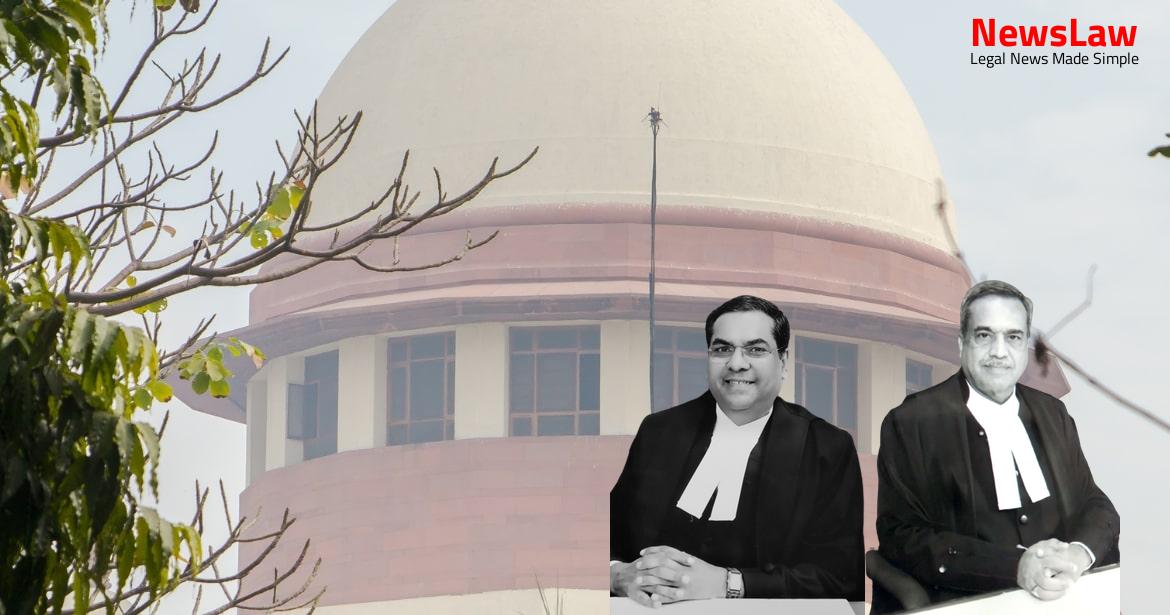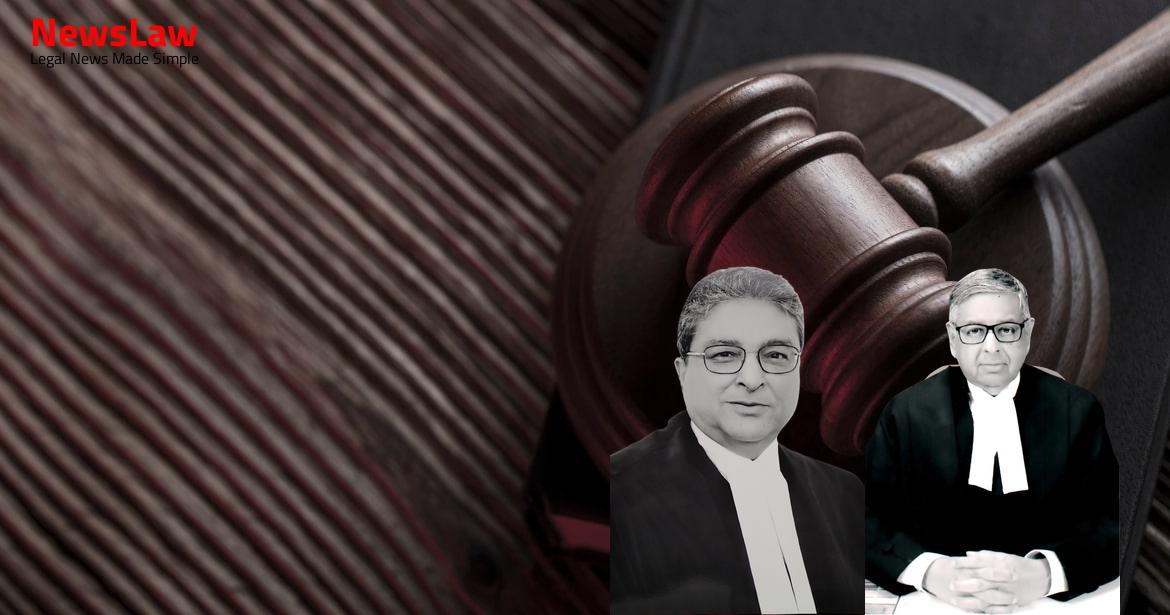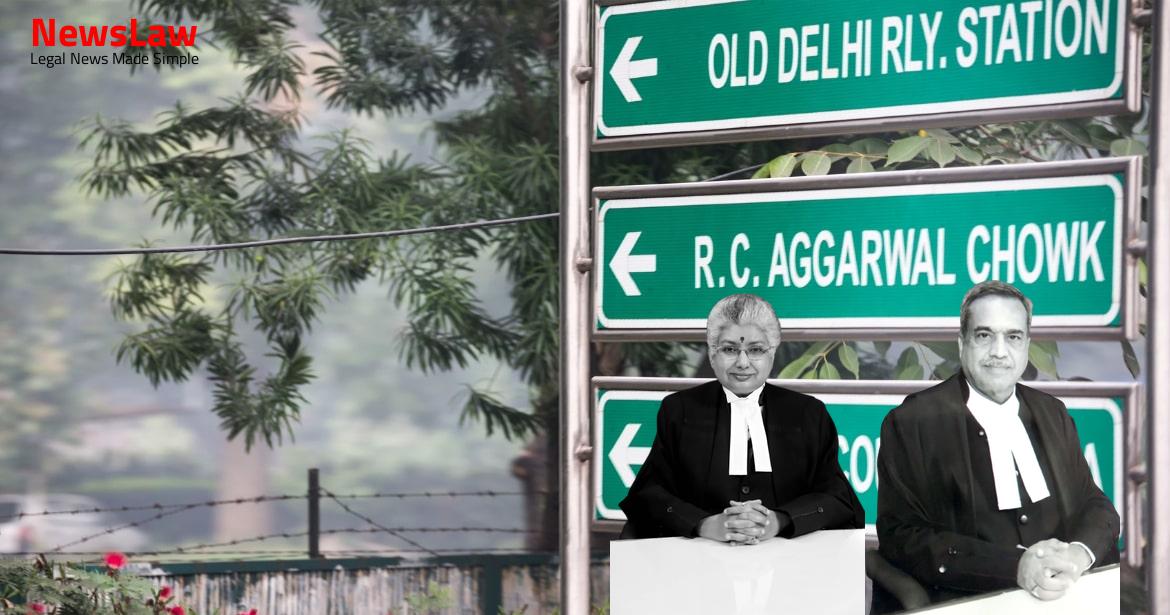In a recent legal case, the High Court acquitted an accused based on a detailed analysis of the lack of evidence establishing their involvement in the alleged criminal conspiracy. The court’s focus on legal nuances and evidentiary support led to a just outcome for the accused. Here’s a closer look at the insightful legal analysis that influenced the court’s decision.
Facts
- The accused, feeling aggrieved by the judgment of the Trial Court, filed an appeal before the High Court.
- High Court acquitted the original accused No.3 but dismissed the appeal for accused Nos.1 and 2.
- Accused No.3, the wife of accused No.1, was acquitted, while accused Nos.1 and 2 were convicted under Section 302 read with Section 34 of the IPC.
- The Trial Court had sentenced all the accused, including Nos.1 and 2, to undergo life imprisonment.
- FIR lodged by Nanbai, wife of the deceased, alleging that accused No.1 and No.2 called her husband to their house and killed him over a land dispute.
- Accused pleaded not guilty and opted for trial under Section 302 read with Section 34 of the IPC.
- Accused No.1’s appeal was previously dismissed.
- Current appeal pertains to accused No.2 – Mukesh, son of accused No.1.
- Prosecution presented eight witnesses, with Nanbai – PW1 being the eye witness.
- Medical and documentary evidences were also brought on record by the prosecution.
- Accused claimed false implication due to enmity with the Sarpanch.
- Complainant stated that accused No.1’s wife held her husband while accused No.1 assaulted him with an axe, leading to his death.
- Prosecution alleges that the accused committed the offences under Section 302 read with Section 34 of the IPC.
- Chargesheet was filed against the accused after the investigation.
- Case involves a detailed examination of events leading to the death of the deceased.
Also Read: Ruling on Circumstantial Evidence in Murder Case
Analysis
- Accused Mukesh, currently in Central Jail, Barwani, has no overt act attributed to him in the case.
- Trial Court observed a conspiracy involving all accused, but no specific role or overt act is alleged against Mukesh.
- Witness deposition does not implicate Mukesh in throwing the dead body in the courtyard.
- Mukesh was accused of dragging and throwing the dead body, but witness testimony does not support this.
- Finding against Mukesh for dragging the body was not backed by evidence.
- Court reviewed Trial Court and High Court findings, as well as witness deposition, finding no criminal conspiracy involving Mukesh.
- Specific allegations are against accused No.1 and accused No.3, with no overt act attributed to Mukesh.
- The State has not appealed the acquittal of accused No.3 by the High Court.
- Both the Trial Court and the High Court have erred in convicting appellant Mukesh for the offenses under Section 302 read with Section 34 of the IPC.
- The conviction and sentence of appellant Mukesh is deemed unsustainable.
- The present appeal succeeds based on the above reasons and observations.
Also Read: Challenging Legal Presumptions in Negotiable Instrument Cases
Decision
- The impugned judgment and order convicting appellant Mukesh under Section 302 read with Section 34 of the IPC has been quashed and set aside.
- Accused Mukesh is ordered to be released forthwith, if not required in any other case.
- The appeal is allowed in favor of accused Mukesh.
Also Read: Legal Analysis Critique in High Court’s Quashing Order
Case Title: MUKESH Vs. THE STATE OF MADHYA PRADESH (2022 INSC 56)
Case Number: Crl.A. No.-000035-000035 / 2022



